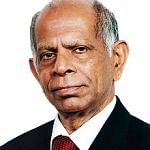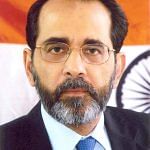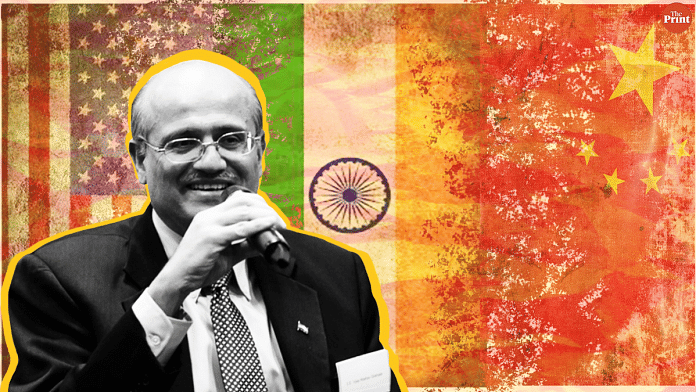India’s foreign secretary Vijay Gokhale on Thursday said that the country is no longer a ‘non-aligned’ state, and follows issue-based alignment. This signals a significant change in India’s foreign policy stance.
ThePrint asks: India is no longer non-aligned: Pragmatic shift or high-risk gamble?
India’s non-alignment policy emerged in a certain historical context
 Sujit Dutta
Sujit Dutta
Senior Fellow & Cluster Leader, VIF
India’s non-aligned foreign policy emerged in a certain historical context. The Cold War began the year India became independent and the nation wanted to avoid being dragged into it. When the Cold War ended, the strategic environment changed dramatically.
During the Cold War, India was largely an inward-looking economy. But in the post-Cold War era, it opened up the economy to other nation-states as well. Growth increased as trade and investment ties began to spread. India’s foreign policy needed to adjust to the new context, have ties with all major powers, new strategic partnerships that would enhance its geopolitical and economic interests.
Foreign secretary Vijay Gokhale’s statement has to be read in this context. India’s ties are growing with the countries that share common interests with us—like Japan, the US, France, and Russia. Despite many differences, ties are growing with China as well. Its regional ties with ASEAN and the Gulf states, as well as Africa and Europe, are all expanding.
In an emerging multipolar world, a flexible foreign policy that advances interests, maintains a favourable balance of power, and builds strong ties with friendly states is taking shape.
In diplomacy, it is never a good idea to state the country’s position so explicitly
 K.P. Fabian
K.P. Fabian
Former senior diplomat
India has been a non-aligned country for many years now. With India’s ambitions to be a great power, perhaps even a superpower, it is trying its hand at different approaches. Keeping that in mind, it is understandable why India would now want to take a position that is against non-alignment. Membership in various bodies and desire to be seen as the next big power can drive such actions.
But the issue is with releasing grandiose statements of this kind. In diplomacy, it is never a good idea to state the country’s position so explicitly. It is better to change one’s direction and adopt a different approach in a surreptitious and careful manner, while simultaneously maintaining a certain continuity. After all, diplomacy means the ability to dance with more than one partner at a time.
While there may be positives and negatives of the move, the net result doesn’t look too pleasing. It can backfire in more ways than one, and may prove to be a dangerous position to take.
Nehru crafted non-alignment as a strategy; his successors wrongly made it an ideology
 Rakesh Sood
Rakesh Sood
Distinguished fellow, ORF and former diplomat
Foreign Secretary Vijay Gokhale has done well to expose the irrelevance on ‘non-alignment’ in today’s age of multi-polarity.
Non-alignment was a policy designed to enhance India’s strategic autonomy in a bi-polar world. It made perfect sense because India did not see merit in aligning with either superpower. The end of the Cold War was followed by a brief moment of US’ unipolarity. And India took the opportunity to establish a dialogue with the US beginning with PM Narasimha Rao and sustained by his successors over the last quarter century. We also strengthened our security in this time by gaining acceptance as a responsible nuclear weapon state with impeccable non-proliferation credentials.
The confusion arises when labels assume greater importance than underlying objectives. During the 1970s and 1980s, we made a shibboleth of ‘non-alignment’, forgetting that the underlying objective was maximising strategic autonomy. In a globalising world where India is increasingly integrating, how can India practise non-alignment (it would imply isolationism) and from which country should we be non-aligned – from our neighbourhood, from our adversaries one of whom happens to be a major trading partner, from our friends like Russia with whom we have long-standing ties, from major democratic powers like US, EU and Japan with whom we share democratic values and much else, or from the Gulf states which are a home to our diaspora and the source of our energy supplies.
Nehru crafted non-alignment as a strategy; his successors made it an ideology, which it was not intended to be.
India needs to preserve its strategic autonomy
 Kanwal Sibal
Kanwal Sibal
Executive council member, VIF, and former foreign secretary
India’s affirmation that the US is a natural ally and India’s designation as a major defence partner by the US requires us to look at the concept of non-alignment in today’s perspective.
We have strategic partnerships with numerous countries. We have declared a special and privileged strategic partnership with Russia, who remains our strongest defence partner. China is no doubt our biggest strategic adversary, but we have maintained the highest level dialogue with it to keep tensions under control. We have developed a strong US-Japan -India partnership that now extends to trilateral naval exercises and have had three rounds of quadrilateral dialogue with Australia’s inclusion. We have joined the SCO as a full member and are a member of BRICS, which is seen as a counter to the West.
Our diplomatic challenge in all these decades has been to resist Western hegemony and sanctions posed on us by the West. Today it is to counter China’s hegemonic ambitions in Asia and beyond. Our territorial issues with China will continue to be a security threat, requiring us to strengthen our deterrence capabilities and establish partnerships with select Western countries that now see a threat to China’s rise. With the end of the Cold War and block politics, non-alignment in the old sense has no meaning.
We need to preserve our strategic autonomy as our interests do not fully converge either with the West or those who are challenging the West. Pragmatism, with a clear focus on what is in our interest, should dictate our foreign policy.
India shouldn’t compromise its values in the name of strategic realism
 Jyoti Malhotra
Jyoti Malhotra
Editor, National and strategic affairs, ThePrint
Foreign Secretary Vijay Gokhale’s comment at the ORF conference comes about 30 years too late, but as they in the Hindi heartland, der aaye, durust aaye.
Soon after the Soviet Union collapsed in December of 1991, ending the Cold War, the Narasimha Rao government under Foreign Secretary J.N. Dixit did something smart: it formalised the opening up of relations with Israel. In turn, the Israelis helped pave the way for a smoothening of ties with Washington.
So much water has flowed under the bridge in these several years. Even the ghost of non-alignment is dead. Realism stalks the landscape – witness the fact that Iranian foreign minister Javed Zarif, US special envoy Zalmay Khalilzad and Afghan national security adviser Hamdullah Mohib have all been in Delhi in the past week.
Problem is when you compromise all your values in the name of realism. Returning Dubai princess Sheikha Latifa to her father, the ruler of Dubai, when she was trying to escape from him, in return for the extradition of Christian Michel, allegedly a middleman for the VVIP helicopter deal, is plain moral corruption. It’s not realism.
Similarly, with China. After Wuhan, Delhi has remained tight-lipped about Beijing’s manoeuvres, so much so that it appears neutralised. If India doesn’t want to give that impression, in the new world order, it must ramp up its game by several notches.
By Fatima Khan, journalist at ThePrint. You can follow her on twitter @khanthefatima.




Friendship with the United States must remain the cornerstone of Indian foreign policy, with China being a dominant consideration. Equally important is the economic dimension. Trade and investment flows could be much larger than they are. However, India is not the sort of ally Israel is, or Britain with its special relationship. There was a phase when our foreign policy was becoming monochromatic. Hopefully, a better balance will be struck.